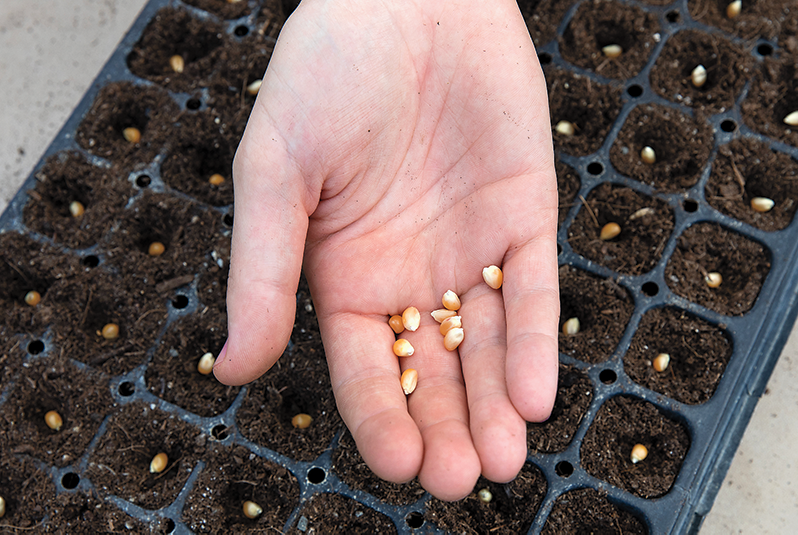Want to understand climate change? Talk to a farmer.
That’s what professors Kate Sims and Ashwin Ravikumar did. They invited Maida Ives, manager of farm education and operations at the College’s Book & Plow Farm, to lead a session of their senior seminar last year.
The perspective of a real farmer—one who happens to grow food for Valentine Dining Hall—brought home the realities of a changing climate. The class visit to the farm came during a period of exceptional rain, the kind climate models predict will soon become more frequent. “Maida spoke compellingly about the challenges of the wet weather and how it had affected the yields across different crops,” says Sims, an associate professor of economics and environmental studies. “She also talked about how the campus farm had adapted.”

For a course on corn’s cultural significance in history, students went to the farm and planted four varieties.
Adapting and evolving is something the farm has done often in the six years since its founding by students and faculty. In 2016, it transitioned from a commercial farm to a department within the Office of Environmental Sustainability. Every year, the farm produces more than 40,000 pounds of food and employs nearly 40 student farmers.
One is Samantha Schriger ’20. “I appreciate my food more now,” she says. And she credits Book & Plow—where student farmers are fed, offered sunblock and encouraged to take frequent water breaks—with deepening her understanding of topics covered in her sociology classes, from migrant farm labor to structures of oppression.
Ives grew interested in food systems while teaching math in a public school in New York. Stressed and unhappy, she found solace volunteering in a community garden. Now, with Ives at the helm, Book & Plow is finding its way into new corners of the Amherst curriculum. American studies professors Lisa Brooks and Kiara Vigil, for example, tapped her to deliver a guest lecture in their class “When Corn Mother Meets King Corn,” which examines the cultural significance of corn in the history of the Americas. The course culminated with a trip to Book & Plow, where the students planted four varieties of corn.
Julia Herion-Cruz ’19 was one of the 22 “Corn Mother” students who helped Ives construct a shade tent for their planting activity. The chance to interact with the farm, where she had previously worked, was a big reason she enrolled in the course. For her final project, Herion-Cruz asked Ives for help in researching the no-till method for farming, which keeps both nutrients and climate-changing carbon in the soil.
Ives was happy to oblige. She welcomes any opportunity to learn alongside students. “Even when I was a middle school math teacher,” she says, “that was my favorite part.”
Photos by Maria Stenzel
